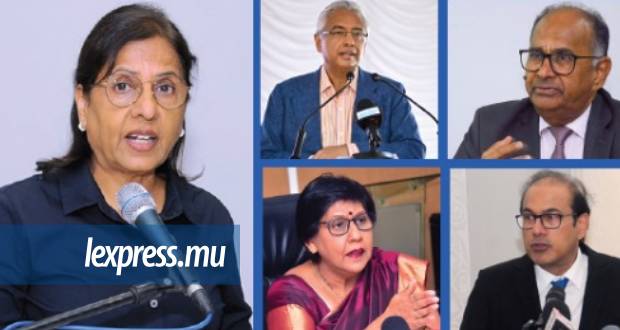Publicité
Three cornered fight: be careful what you wish for
Par
Partager cet article
Three cornered fight: be careful what you wish for

Be careful what you wish for; you might just get it. Those wanting to see a three-cornered fight so that each party can show what it’s really worth electorally seem to be getting their wish: the MSM, the Labour Party and the MMM seem to be headed into the next polls on their own. This would be the first time since 1976 that a coalition would be formed after and not before an election. No one knows what will come out of it.
To get an idea of what a post-electoral political landscape might look like, one only has to remember what happened in 1976. Just like today, back then too nobody seemed to have a clear idea of who to ally with: within the Labour Party, Harold Walter wanted an alliance with the MMM, Satcam Boolell was against it. In the MMM, Paul Bérenger wanted an alliance with Labour but Anerood Jugnauth did not. So each party went into the polls separately, where the MMM got 34 MPs, Labour 28 and the PMSD 8. And so Labour and the PMSD decided to freeze out the MMM and form a coalition with an exceedingly slim majority of just two MPs.
This sowed the seeds of instability for the next few years and helped pave the way for the electoral decimation of Labour and the PMSD in 1982. The weak, divided government struggled to survive. That it managed to was due to a combination of less than idealistic tactics: it encouraged floor crossing from the opposition to make up for its lack of numbers (it survived two motions of censure by engineering strategic defections) and the prime minister essentially had to put up with a lot of political blackmail. Smelling weakness, tensions and leadership challenges mounted within Labour that led to Harish Boodhoo breaking away to form the PSM. Allies within the government started sniping at one another, with Gaëtan Duval criticising Seewoosagur Ramgoolam and Veerasamy Ringadoo. At one point, Duval threatened to get his MPs to quit the government if he was not made head of the Port Louis municipality. This weakness within government also bred contempt for it outside with the opposition MMM, emboldened enough to launch a general strike in 1979. All this is to say that the last time a post-electoral coalition happened, it was a fiasco, delivering only unstable, shambolic governance.
Yet, despite all this, it endured. That’s because the glue that held the Labour-PMSD combine together was stronger than what was pulling it apart. This is not necessarily the case for any future post-electoral alliance that may come. In 1976, fear of the radical MMM was a key motivator: the private sector wanted to keep the MMM out, fearing its leftism and outside powers such as France and the UK encouraged Ramgoolam and Duval to join hands fearing that an MMM government would lead to further Soviet inroads in the region and embolden leftists in the Indian Ocean generally and neither Labour nor the PMSD knew what the MMM would be like in government. Better the devil they knew. None of these factors is of much importance today; the MMM has ditched most of its leftism, external countries don’t have much problem with it and neither does the private sector that has come to see the MMM as just another party it can do business with. In addition, in pre-electoral coalitions, one party is usually larger with a junior partner. This is stable because each knows the limits to which it can push. In a three-way contest, however, where one party emerges as a kingmaker, one can only imagine the tensions (not to say blackmail) that would have to be constantly papered over to keep them from joining, and bringing to power, the opposition.
If a three-way contest were to materialise, the result might just be another bout of weak government.
Publicité
Les plus récents






